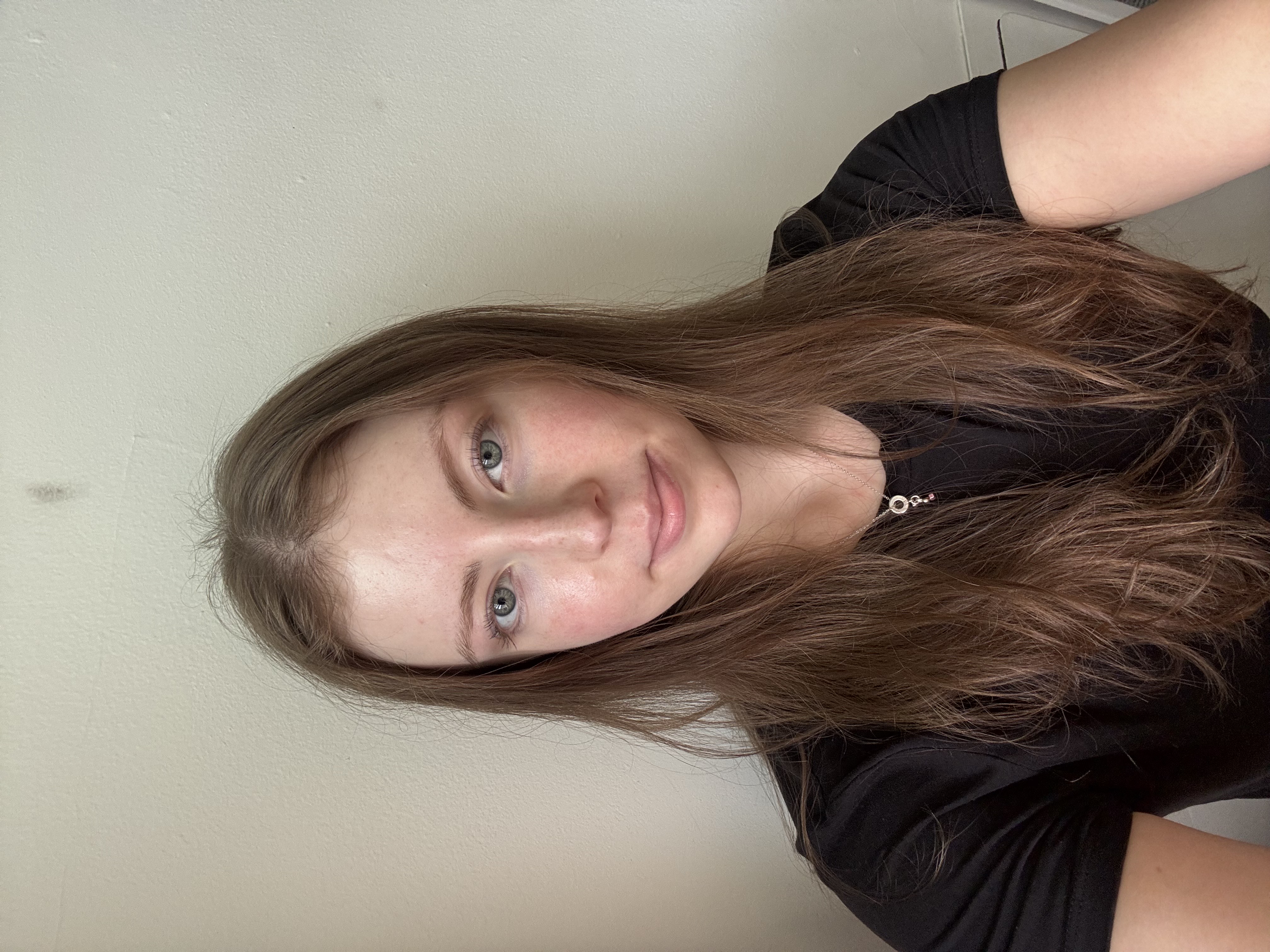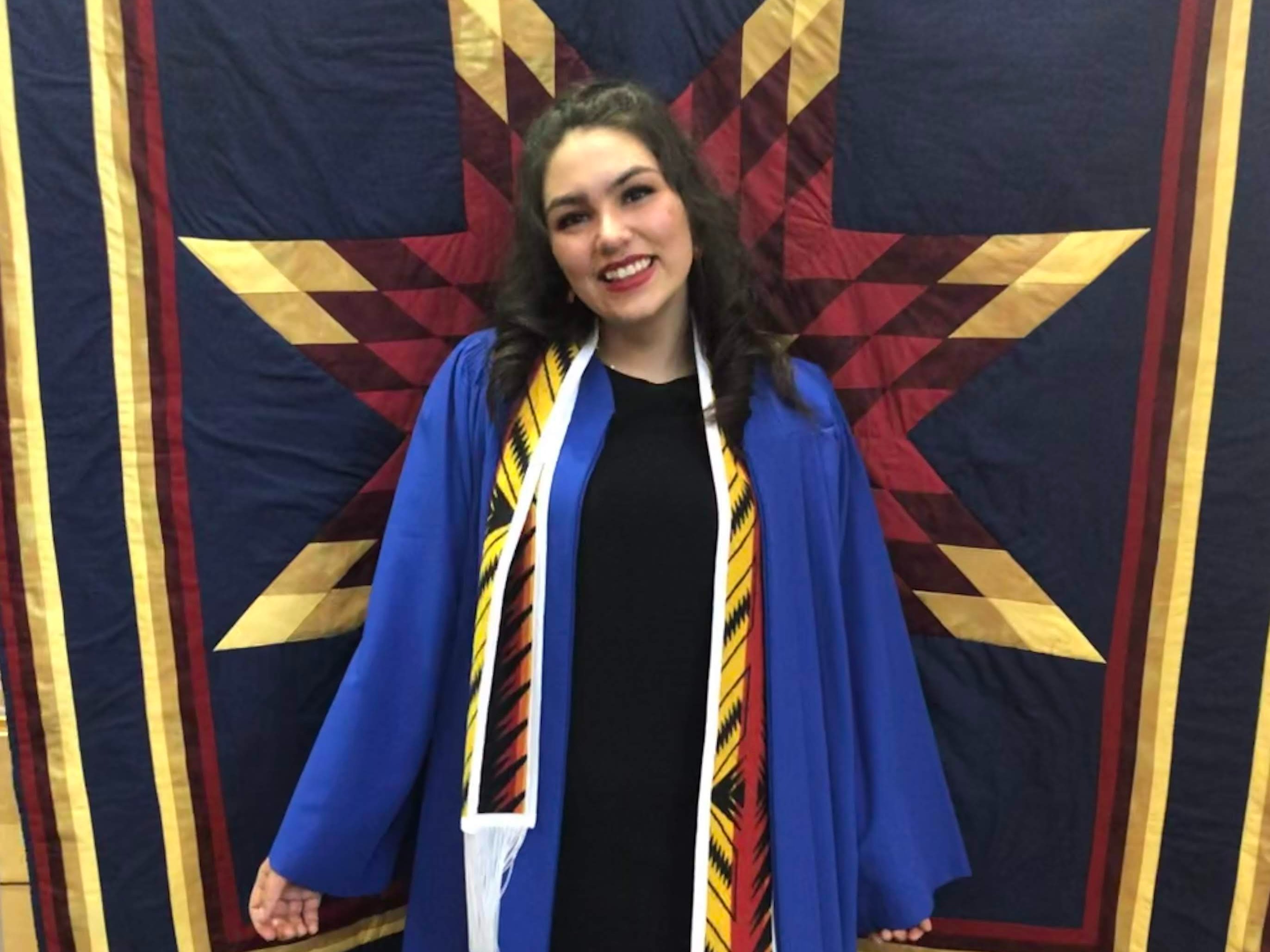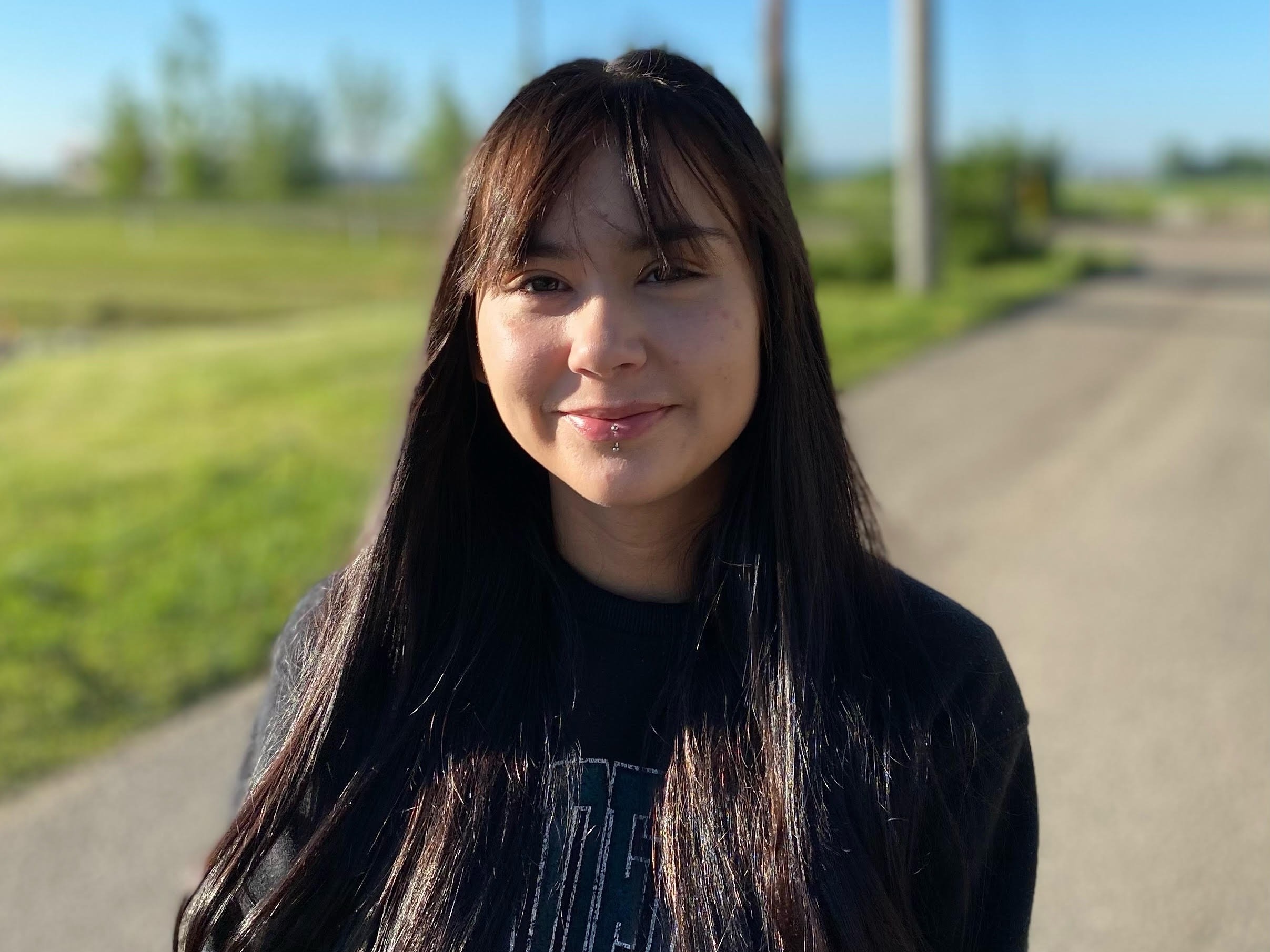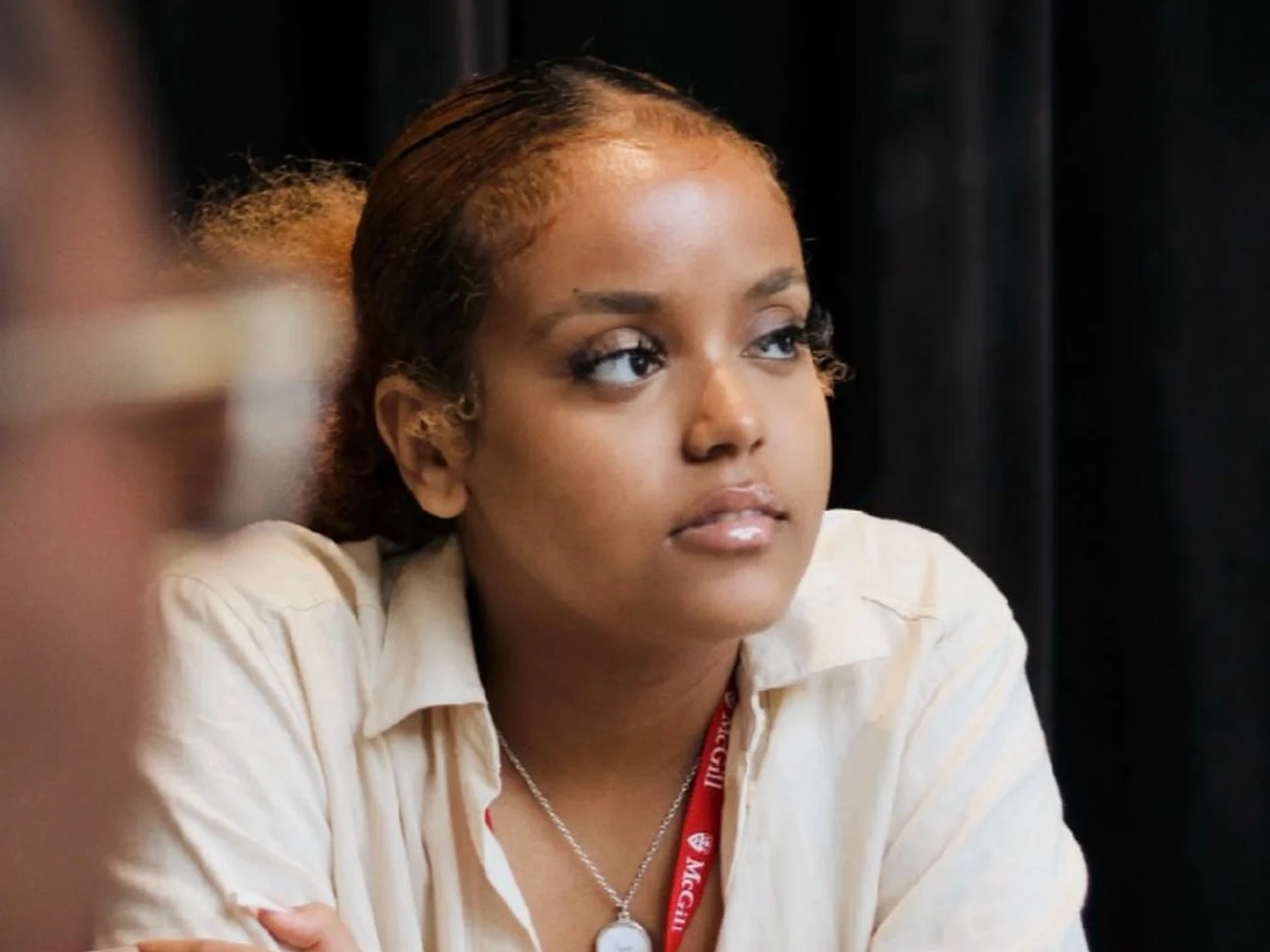
Student Bursary
This TELUS Student Bursary recipient is helping Black youth explore their full potential
Feb 12, 2024
The TELUS Student Bursary has helped clear the way for Blain to pursue a career in law and work for social change from within the legal system.
The workload of a first-year law student is demanding, often involving up to 50 hours a week of classes and reading. Blain, a first-year student studying at McGill University’s Faculty of Law, not only takes on this academic challenge, she also manages a part-time job at a community center, working an additional 35 hours a week on top of a full course load, and eagerly participates in Montreal’s active social justice scene.
“I sometimes wonder how long I can keep up the pace,” she says.
Yet, when asked to mentor a Black high school student exploring a future career in law as part of McGill University’s Pick Your Path program, she jumped at the chance. The opportunity to bring positive change to a challenging world is what drives her.
“University life is very new to me. There’s a huge learning curve, but tutoring and mentoring comes naturally, something I have done informally since high school,” says Blain.
As a TELUS Student Bursary recipient, Blain received $5,000 to cover her tuition. She is one of 400 students across the country awarded a bursary each year. TELUS Friendly Future Foundation also gives additional support to bursary recipients by offering
free mobility and low-cost internet plans
during school and after graduation, as well as mentoring, networking and other career development opportunities.The power of change
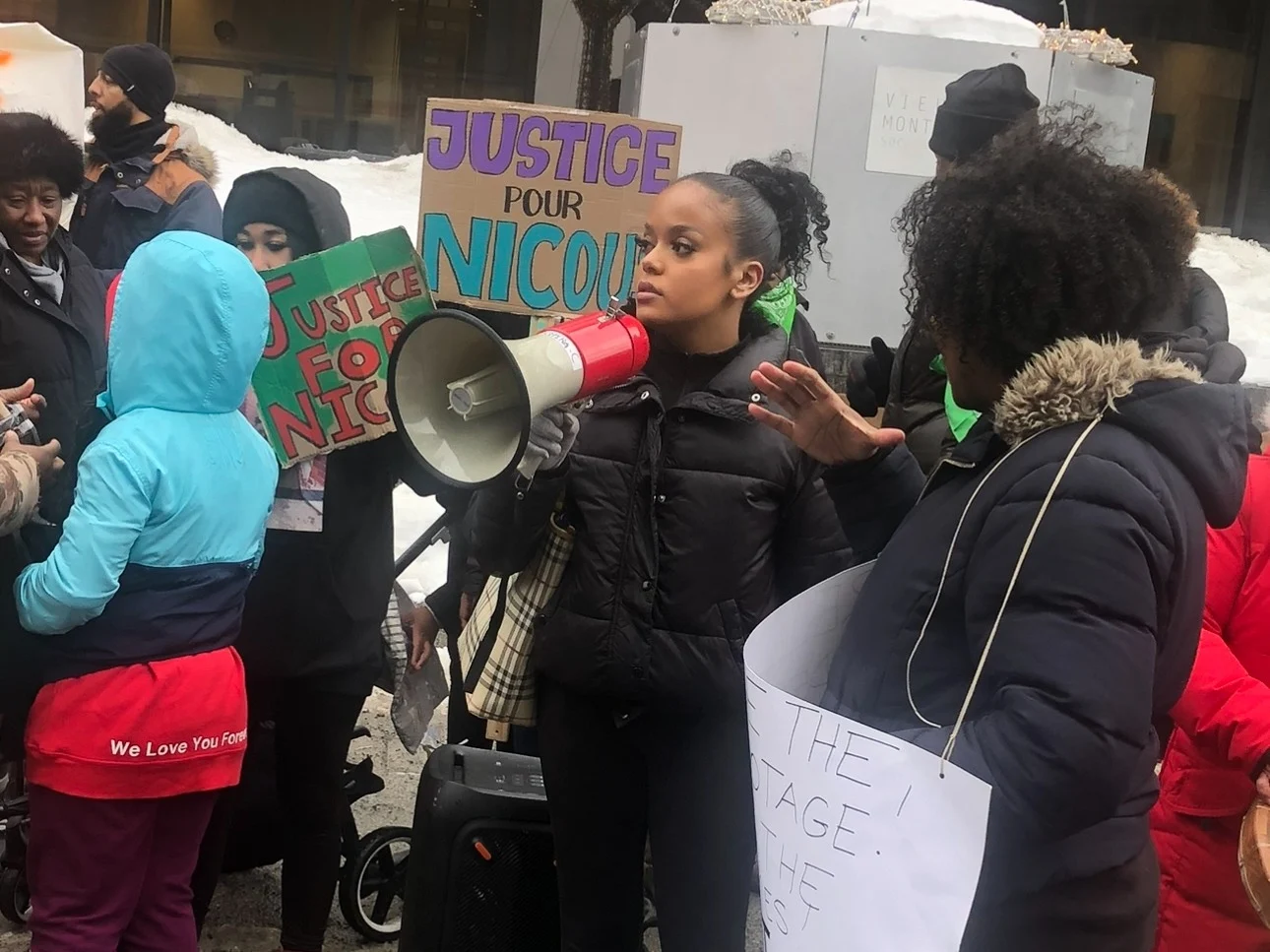
Pursuing a challenging academic course seems to come naturally for Blain – who is a first-generation Canadian and the daughter of an Ethiopian immigrant. A law career trajectory was not always the clear path for her, though. Not until 2020 that is.
George Floyd
’s murder in Minneapolis, MN, prompted her to reflect on her identity, particularly while attending an elite high school with just one other Black student in her cohort. That high school is the prestigious École internationale de Montréal, a public French-language school located in the Westmount area. In 2020, it was ranked first among the province’s top secondary schools, with admission limited to those passing stringent exams.“I quickly moved from reading and studying to networking and then activism. It opened a new world to me,” she says.
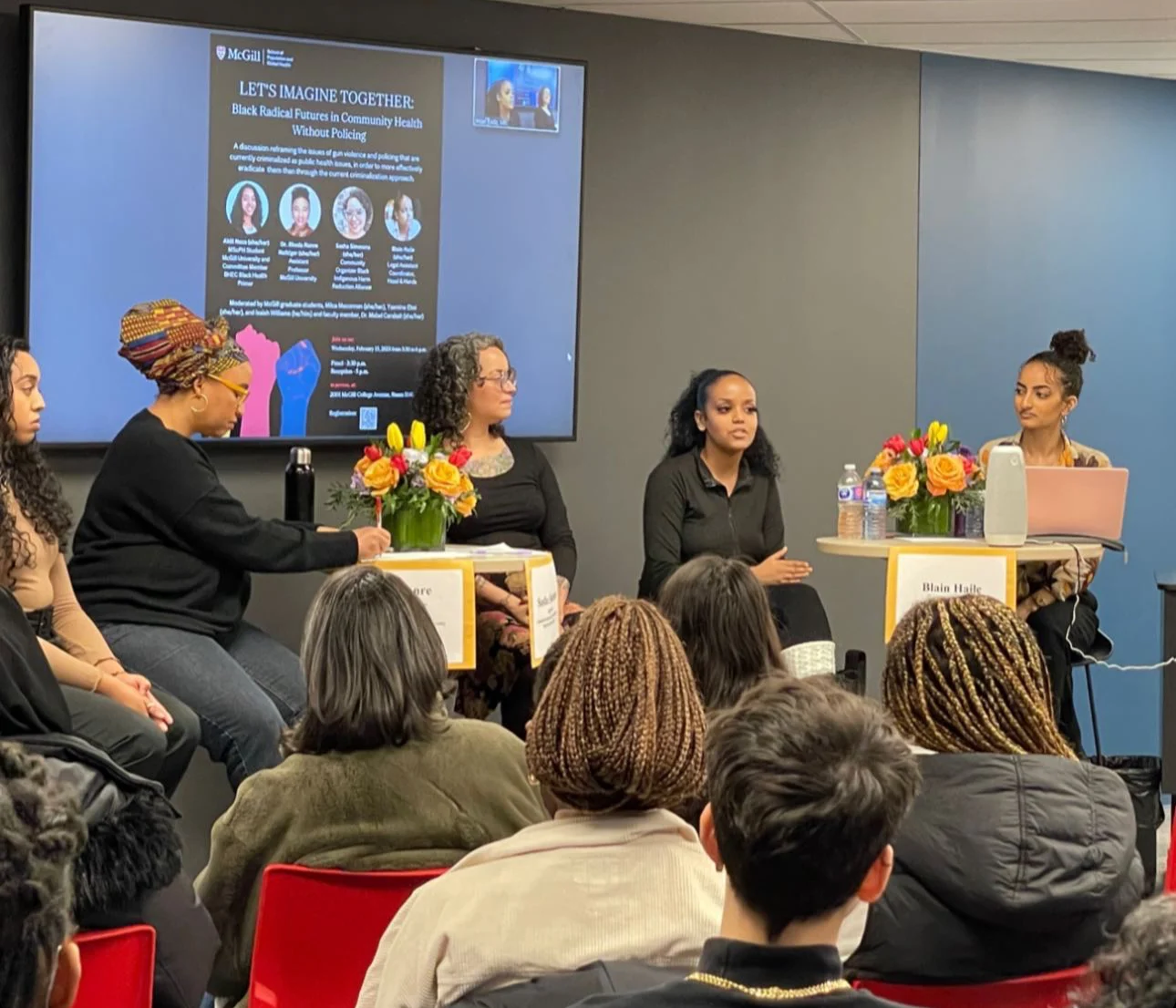
In the summer of 2022, Blain joined École Sans Police, part of the international organization Policing-Free Schools, which works largely in racially diverse, low-income areas like the one in which she lives. She has since organized and taken part in press conferences, protests and town hall meetings on behalf of the group.
As her education progressed, Blain was conflicted. How could she aspire to join the legal establishment and then turn around and protest against it?
“After more research, I realized that there are people who study law and use that knowledge to improve the system from within,” she says, “and that is where I’m headed.”
Blain is now pursuing a bachelor of civil law and a juris doctor degree with a minor in gender, sexuality, feminist and social justice studies at McGill University, where she now serves as a mentor withPick Your Path McGill - a program for younger Black students who want to pursue law. . Her future aspirations involve pursuing graduate studies in race relations and critical race theory after completing her undergraduate studies.
Join us in supporting the changemakers of tomorrow, today.
Donate now
. 